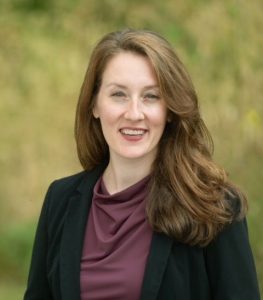
As we await a final determination of the 2020 U.S. General Election, Harrisburg Academy Assistant Head of School/Head of Early Childhood and Lower School Abby S. Mahone, Ed.D. reminds families of the need to provide accurate and age-appropriate information to their children to answer their questions, ease their fears, teach them important lessons about democracy and our voting system, and keep home environments a place of calm and routine.
Dr. Mahone notes, “In our classrooms at Harrisburg Academy this week, I spoke about the importance of the electoral process. I reiterated that voting is one fundamental way that we make choices about how we live and work. I also shared that although they are too young to vote, there are still many ways that children can be involved in their communities and make a difference.”
Dr. Mahone offers students these suggestions for productive actions and discussions around the election:
- Practice having informed, evidence-based debates. This is an opportunity for us to learn from each other and discover how different groups in society see the world differently. Don’t be afraid to ask questions and really listen to each other!
- Be a role model. When people care very deeply about a topic, emotions can run high and we can see things in a binary way — either good or bad. Resist this temptation and instead understand that someone may make a choice that you disagree with, but they have their own reasons for these decisions. Use the election season as an opportunity to better understand each other.
- Take action! Volunteer to help make our community better in a lot of ways. Some Academy students volunteer at local food banks or within their religious and community organizations. And everyone can encourage their grown-ups to register and vote!
Dr. Mahone also encourages parents and guardians to embrace the approach of clinical psychologist and child-development expert Dr. Laura Markham who advises families on how to talk to their children about electoral politics. Although many may consider politics only an adult conversation, Dr. Markham reminds us that children are also hearing about the election and drawing their own conclusions. Dr. Markham encourages parents to take this as an opportunity to have discussions that develop critical thinking, good citizenship, and values.
To help understand the electoral process and this unusual election, Dr. Mahone recommends following these general suggestions:
- Set and control the tone in your home by monitoring news and social media. However, don’t allow them to dominate your valuable family time together. Continue participating in family activities and discussions. Keep your routine as normal as possible.
- Maintain your composure in front of your children. Remember, kids watch our reactions and our words carry great weight with them. When talking to your child, remain calm, offer a listening ear and foster a stable environment. We always want to make our kids feel safe.
- If your child asks questions, explore what they already know, find out what they have heard and correct any misinformation to alleviate concerns, fear or anxiety. Explain issues at an age appropriate level and remind older children to research using trusted, reliable sources.
- When presenting your opinion to your children, emphasize the importance of respect and civility and the needs to have facts to support your positions.
- As you discuss political races and campaigns, refrain from labeling or criticizing voters with opposite opinions than yourself.
To schedule an interview with Dr. Mahone, please contact:
Lucy Gnazzo, 717-979-0692, [email protected]
or Nell Abom, 717-514-6301, [email protected]
About Harrisburg Academy:
At Harrisburg Academy, an outstanding, forward-thinking, hands-on education is paramount with students engaged on a unique journey of self-discovery, academic achievement and social growth. Students, preschool through high school, excel in a challenging and diverse curriculum, and are well-rounded scholars and creative artists, exceptional athletes and talented musicians, and globally minded philanthropists. They benefit from the enormous advantages of a small learning community each and every day that offers stimulating growth to prepare them for 21st Century success to learn boldly and to think analytically, creatively and innovatively.
